|
My husband Bryan is a risk-taker. It's something he is well-known for, from his love of climbing mountains to his willingness to try any new food set before him. Raw horse, anyone? Squid still squirming? You name it, he's ready to try... He even held a job after college repelling from the roofs of tall buildings to wash windows. Risk – something necessary to business, particularly new startups – is second nature for him. It is well known that I married my opposite. I love safety. I love things being nailed down and decided. I don't have a risky bone in my body and usually only attempt new things after much research. Needless to say, the new interesting food items on the menu when we moved to Japan weren't calling my name. Our move to Japan itself was a huge leap of faith for me. Though I was completely convinced it was God's desire, my natural inclinations and instincts fought me the whole way, even for years after our move. And then God led us to start a business. Though we find ourselves on different ends of the personality spectrum, Bryan and I experienced similar feelings and thought processes about opening up shop in Japan. The question of WHAT we would do was always answered for us: we both had storied histories with coffee culture and had dreamed about how our loves of coffee and people might intersect. Bryan had made easy friends and connections in the coffee industry of our city and greater Japan, so God was already opening doors. But a business? In Japan, of all places? The paperwork, all in a second language – an arduous language. The stress stories from other entrepreneurs, with the added stress of a different culture. We can't own property, get a loan, or sign up for a credit card here – how would we pay for it? And if we are somehow able to begin, how could the two of us possibly sustain it? What if the business fails? What if we can't find other workers and collapse under the pressure? What if it turns out that we are horrible at business? Without answers to these questions, Bryan and I began taking turns playing the roles of doubter and encourager for one another. We both knew the truth that God never promises success, but always promises His presence. We also knew that obedience is the safest place to be, even if it looks risky or downright crazy from the world's perspective. And God had affirmed us time and again, through the mystery of His peace, through the encouraging word of a colleague, and through the excitement of our Japanese friends and neighbors. Some of those friends breathed sighs of relief, saying, "So you're really going to stay, then?" We were ready to give it a go; in fact, a fire had been lit and we NEEDED to do it, even if it would be crash-and-burn. We trusted that God would lead us, and He would either open doors to success in this venture, or He would close them and teach us in the process. So far, like so many stories of those following Jesus, it has been one risky leap of faith after another. Jamie O'DonnellWife, Mother, Founder, GEN Desk Writer Previous posts from Jamie and SSCR.
0 Comments
After a particularly crazy December, I finally carved out an hour to hole up in the local Starbucks and compose my introductory blog for the GEN Desk explaining Second Story Coffee Roasters, our missional enterprise in Japan. My coffee had arrived, my computer was open, my earbuds were in -- and just a literal moment later, my phone buzzed. A text message, written in Japanese: "Are you at Starbucks?" I looked up, puzzled, mainly because I didn't recognize the Chinese characters of the author's name. How do you read that kanji again? "Yes, I'm in Starbucks. Where are you?" I glanced around for a familiar face as I typed, hoping I might remember the name that went with it. I didn't need to wait long, because she showed up at my table: a woman I'm slightly acquainted with through my volleyball league. She asked if she could join me, though I was clearly there to work and even said so. Nonetheless, she grabbed her bag and sat down, which is unusually forward for a Japanese person, so I took the hint and closed my computer. This was outlined long ago in our cultural training, right? To let go of expectations and go with what comes? I took the opportunity to practice, and found myself excited to have coffee with a new friend. She and I talked about the normal things of life: work and children, medical appointments and shopping, daycare, school life, and trips we'd taken. It was essentially an hour of chitchat. The time I had set aside to work had been totally enveloped into conversation with this woman, whose name I would later look up and make a note of so I could actually use it the next time we met. I mentioned the time and we parted ways, she to get groceries and I to pick up kids. I was musing over our meeting in the car, when realized that God had given me my blog post, though I hadn't written a word. That simple conversation about day-to-day life in Japan? That was at the heart of our desire to start a missionally-minded business. When we worked in traditional ministry with college students, though we had good relationship with the young adults that came to our home, we felt out-of-sync with the culture at large. While everyone else's husbands were at work, mine was available to help. Whenever anyone asked what our job was, they quickly became lost after we tried to explain. We were living our lives in a way that was very different from the people around us. Though we had moved to their country, studied their language, and sent our children to their schools, there was a part of the nominal, everyday chitchat that we just didn't get. We keenly felt the ways in which we could not relate to our Japanese friends and neighbors, from childhood memories to language, skin color, family culture, and even worldview. But we felt that if there was anything we could do to bridge the gap, enabling us to understand the hearts and minds of our friends just a little bit more, we wanted to do it. This is one of the reasons we have started Second Story Coffee Roasters. Jamie O'DonnellWife, Mother, Founder, GEN Desk Writer Second Story Coffee Roasters (SSCR) wants to take care of people. "We want to be a resource to our friends and neighbors, helping them to move closer to who they were made to be. We believe we can do this through coffee, which is the second most traded commodity in the world. Within this large market, we would like to create a business where taking care of people and their stories is as valuable as the quality of our product."  Bryan and Jamie launched SSCR to be a relationally-sourced, primarily single-origin coffee roaster located in Shizuoka, Japan. Currently, they operate on a subscription basis, mailing and delivering coffee to our customers weekly, bi-weekly, or monthly, in addition to occasional pop-up coffee stands in the Shizuoka area. They also roast for wholesale and commercial accounts and hope to open a retail location. Japan is one of the leading consumers of specialty coffee in the world. Bryan and Jamie have a passion for the art of the craft and take great care to bring precision to every part of the process. But beyond the roast and the cup, they brilliantly illuminate the stories of life... from the plantations, consumers, and themselves. They are also deeply interested in the "second story" that is being written every day. 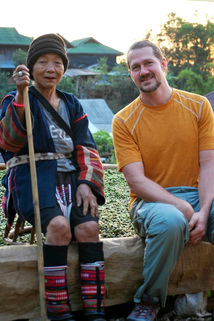 Bryan with a Nepali farmer on one of his many journeys learning about the source of the story. Bryan with a Nepali farmer on one of his many journeys learning about the source of the story. "SSCR strives to buy direct and fairly traded high quality coffees roasted on location with full knowledge of the story behind each bean. We strive to connect with your story, the 'second story,' as we introduce you to the countries and producers of your daily pleasure, even offering the opportunity to travel with us and experience the communities that produce your coffee." Their own story to launch SSCR has been written over many years. Read more about a first leg in their journey to launch, "Our Story to Become Missional Entrepreneurs." A second phase is currently taking place to raise capital needed to secure a new roaster and continue the story. Follow SSCR on Facebook and Instagram, or contact us for more information about Navigator Missional Enterprises and Business as Missions (BAM). – GEN Desk Director
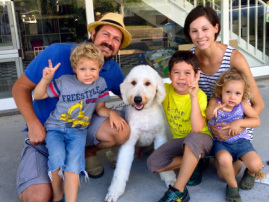 Bryan, Jamie and family Bryan, Jamie and family “So you’re really staying!” was our friend's reaction with a noticeable sense of relief and excitement. Our conversation came after living in Japan for five years, enrolling our children in Japanese school, and learning the language. We assumed surely after those steps, we had communicated to our friends a desire to be invested in their culture and lives. But there was something missing as they waited for an abrupt and unexpected departure. We realized there is something about working with a college club that had kept us from being viewed as committed members of society and life in Japan. However, we noticed an instant change while sharing our vision to start a business in Japan. It communicated our commitment to relationships and opened opportunities for our friends to participate. This friend in particular excitedly shared her own ideas and expressed desire to serve and help us. We believe that part of her reaction was her new ability to understand what we are doing vocationally, which also allowed us to move forward relationally. 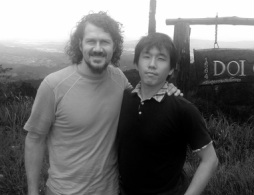 Visiting coffee farms in SE Asia. Visiting coffee farms in SE Asia. As we have prayed over making the transition from "traditional missions" as full-time campus ministers to missional entrepreneurs (by pursuing a direct-trade coffee roaster and shop next to the university), we have felt like we are in a process of aligning what we believe with what we are doing. Many of the ways God had been opening doors for us fell outside of our assigned ministry as collegiate staff, which gave our lives a slightly fractured feeling. The lack of alignment pushed us to explore the idea of an organic and incarnational ministry that goes to where people naturally reside contrary to an invitational ministry that calls students into a club outside of their day-to-day life. As business owners, we believe that we will be able to be a better living witness of the gospel as contributing members of the community than as peripheral oddities with a job frequently misunderstood by the majority of the Japanese population. We believe that the whole of life can be sacred – whether roasting coffee, changing diapers, or working as a salaryman – and is a misunderstanding of the Gospel to only view time directly tied to Bible study and church as valuable. There is a great temptation to consider the remaining time as something simply to be survived or in competition with what “really matters.” We hope to be change agents to what it means to be Christ’s followers in Japan by entering the business world and roasting, brewing, and selling coffee to the glory of God. – Bryan and Jamie GEN Desk Commentary –
How do we better incarnate the gospel in the setting God has us now? Please share your thoughts or comments below. |
Categories
All
Archives
March 2020
|

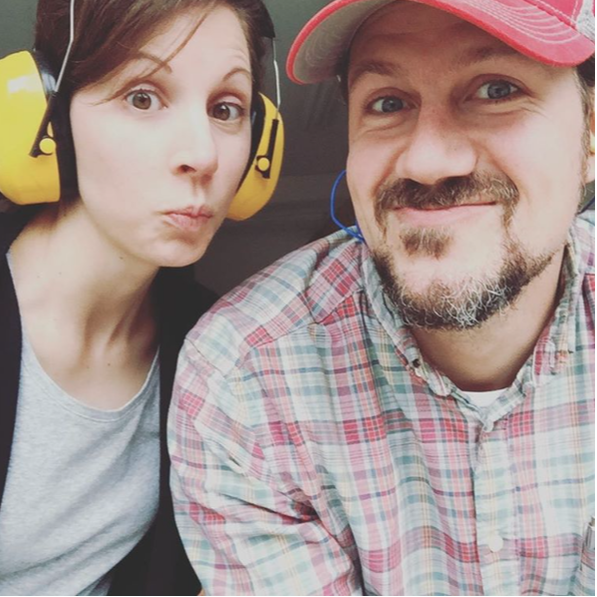
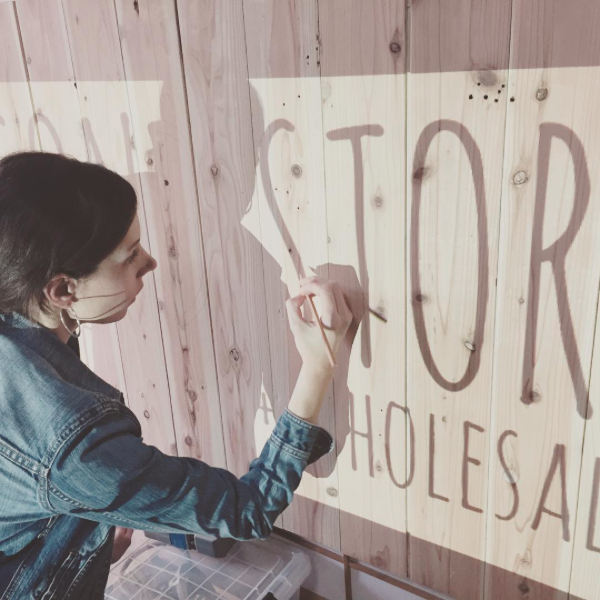



 RSS Feed
RSS Feed
